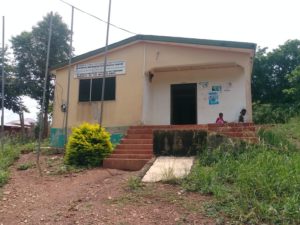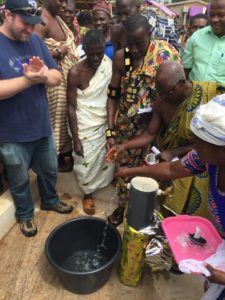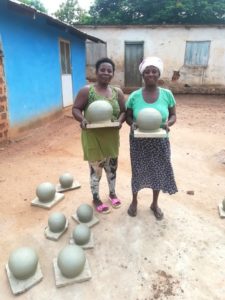HEALTH CARE ACCESS:
There are two types of public health clinics available to rural Ghanaians: Health Centers and Community-Based Health Planning and Services (CHPS) compounds. Health Centers serve large geographic areas within a district and are staffed by physicians. CHPS compounds serve small clusters of communities and are staffed by live-in nurses. The nurses provide basic services and, if capacity allows, they conduct home visits to families in the communities.
Even with this coverage, it is important to note that medications, equipment, and essential infrastructure are often not available in these clinics and the physician density in Ghana remains around 0.2 physicians per 1,000 people. According to the World Health Organization, there should be a minimum of 2.3 physicians per 1,000 people to qualify a country as having adequate access to medical attention.
Another key factor for health care access in Ghana is insurance. Ghana’s National Health Insurance plan offers universal coverage, but few rural community members are actively enrolled. During Medical Brigades, community members are educated about the benefits of health insurance, and are encouraged to enroll (or re-enroll) in the National Health Insurance Plan.
Otabanadze does not have its own CHPS compound, but community members are served by the nearby Ekrawfo CHPS zone. The top 3 most common illnesses reported in Otabanadze are: malaria, chest infection, anemia.
*These statistics reflect data from historical Medical Brigades in Otadanadze. Medical Brigades are now held in the community of Ekrawfo, where community members from Otabanadze attend mobile clinics.




